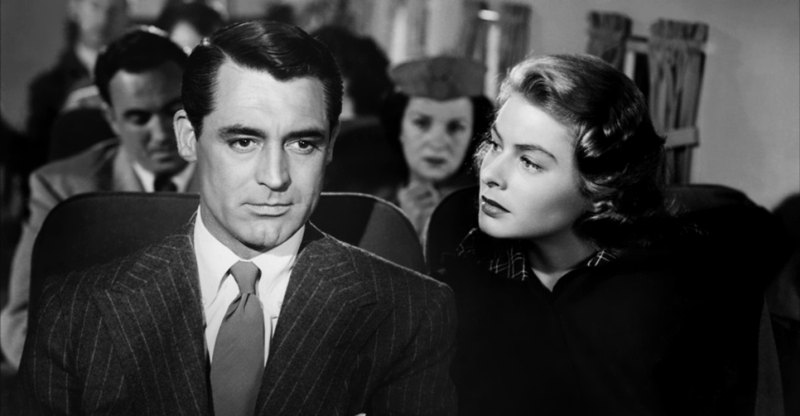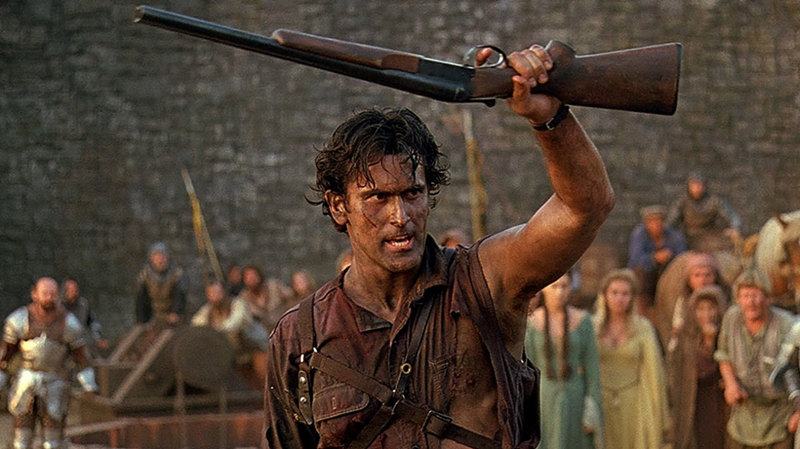For all the real world misery and inhumanity the Holocaust has caused, films (and the novels which inspire them) are in love with the material. Not so much because any particular story knows how to mine the event for all the teary-eyed melodrama it can; no, it is rather due to the short hand it can provide. Less work has to be done inside the confines of the story if it can all be explained in one way. Holocaust survivors. That’s perhaps the most damning aspect of “Autumn Hearts: A New Beginning” in film form: instead of creating three dimensional characters, the adaptation flounders about like a bad television movie from one obvious character scene to another without adding anything of its own.
It is a day of joy for Melanie (Susan Sarandon) when old friends Jakob and Christopher (Max von Sydow, Gabriel Byrne) visit her in Canada. The three were interred at the same internment camp during World War II and have not seen one another in decades. Her husband, David (Christopher Plummer), doesn’t share her enthusiasm out of fear: Melanie has not been able to share her time in Drancy with him. When her friends show up, the three-as well as their son Benjamin and grandson Timmy-are thrown into a whirlwind of emotions over the course of one day, all in the hope of making the group stronger in the end.
Susan Sarandon, Christopher Plummer, Max von Sydow, Gabriel Byrne…I’m not sure there is a movie with a higher average age since “Cocoon.” (Roy Dupuis as son Benjamin was born in 1963, thus lowering the average a bit.) Fine actors all and each of them let down by the source material. It’s as if, in each scene, screenwriter Jefferson Lewis and director Paolo Barzman are afraid to confront the deeper implications of the story, opting instead to skim the surface. If the film is going to derive at least some of its emotional impact from the events Melanie, Jakob and Christopher experienced, it might have been a good idea to show at least one of them. Maybe Jakob’s time as a human guinea pig involving electrodes and drugs. Simply listening to brief smatterings of dialogue designed to give us a flavor of the history don’t work since we’re forced to rely on our own imaginations of what it must have been like.
(To be fair, in certain types of films, seeing less is more. Examples include “Alien” and “Jaws.” However, in drama, it is imperative for the audience to see, rather than be told, what has transpired in order to build real characters.)
In order to make up for what we don’t see, the screenplay tries to tell us what has happened. Somehow, though, it is less effective at building emotion through the film than it should be. Perhaps it is the combination of the lack of visual backstory and the mysterious way the rest of the film plays out. We get hints and innuendo about the issues plaguing all these people, yet no one ever comes right out and explains for our benefit. Melanie checks into a hospital when she begins to have meltdowns. A meltdown? From what? Her time at Dracy, presumably. Perhaps even David’s dalliances with students while the two were married. Why are Benjamin and Timmy living on the farm with Melanie and David? There is a wife and mother in the equation somewhere; there’s only one mention of her being able to join the others before she is forgotten. It is minor details like this which permeate the film, leaving a series of open questions for us to ponder. Either that, or the screenplay is incredibly sloppy.
This may also be a symptom of poor editing. Several scenes seem to cut away before they have any real chance to get going or reach their logical conclusion. Perhaps footage was cut in the editing room. Maybe this style was a deliberate choice by Barzman and editor Arthur Tarnowski. Either way, the premature cuts leave a jittery, herky jerky feeling to the film.
One of the other more minor problems with “Autumn Hearts” is the lack of logical progression for any of the characters. We’re meant to believe they all come to individual understandings about each other, yet we never get to see how they arrive there. It’s maddening, actually, to go through the film, knowing where we have to end up and find ourselves trying to jump a story bridge without a vehicle. What is said between David and Jakob to have the two form a truce? Why is it David doesn’t confront Melanie over Christopher before the credits roll? Apparently, it only matters that there is one happy family in the end. It’s simply not fair to the audience.
Even with these problems, it’s hard not to at least mildly recommend the film (also known as “Emotional Arithmetic”) on the basis of the performances. The actors gamely try to overcome flawed material and, in various sequences, they bring depth to an otherwise shallow affair. Notice how little dialogue takes place in a scene late in the film between David and Jakob. While I did just lament the lack of verbal reasoning to get the audience from point A to point B, something about the scene works, almost allowing Barzman to pull it off. There is a weariness from both actors, almost a grudging understanding of what is going on in their lives. It’s in the way both carry themselves, the way their eyes show the signs of being on the verge of giving up.
Byrne and Sarandon fare somewhat worse, due to the fact we never buy into their ageless love affair. If, for the sake of argument, the really did care about one another and Melanie has been trying to keep a record of the camp survivors for years, how are we to believe these two never crossed paths? Granted, this nit pick doesn’t have a lot to do with the performances, but the scenario informs the acting choices by making both-particularly Sarandon-overplay the rekindled romance to such a point we want to tell her to grow up. This goes back to her performance early on, too, in which she acts like a giddy schoolgirl showing Jakob the room she has put together for him. There’s a wide-eyed exuberance in her, eventually becoming supremely annoying.
I did want to take a minute to mention the location shooting. Taking place almost exclusively at the Winters home in Canada, Barzman creates a believable setting with all the little touches we’d expect: bottles of pills, papers strewn on tables, clothes discarded on beds. These visual cues tell us this homestead is a place where people actually live, instead of a movie set. Additionally, when the action moves outside, the scenery is lush, calm and serene. My feeling is the complexity inside the house and the stillness outside are meant to parallel one another.
So what does “Autumn Hearts” actually say? I don’t know if it’s ever truly sure. On the one hand, we’re supposed to remember the past for both the people who died and the people who lived. But on the other, we can’t live in the past. When Jakob entrusted Melanie with a record of the camp back in WWII, he never explained to her the difference. She kept meticulous notes every day and continues to live in their shared past to the detriment of David. There’s a cruel lesson for her to learn in the climactic scene, one verging on success since we are sympathetic to Melanie despite the character. Thing is, by the time the film gets to this point, our consciousness is filled with unanswered questions and leaps in logic, we simply don’t care anymore. And that’s sad, to be honest. There is so much potential on the screen and it goes, largely, to waste.
VIDEO:
I’m torn over the 2.35:1 anamorphic widescreen transfer. On the one hand, the first 60% of the production looks respectable, good even. Colors aren’t the most crisp, yet there is a very discernible style at work. Everything looks like a painting, with hard black outlines and a gentle palate. Then comes the end of the film, taking place almost exclusively at night. Every problem the transfer could have comes to life here, from white spots to very visible mosquito noise.
It’s distracting, to say the least, trying to pay attention to the action and relationships while seeing flickers around the entire screen. On a 46 inch TV screen, these flaws are painfully obvious. On a smaller computer screen, the picture appears very good.
AUDIO:
No surprise here with the English 5.1 and 2.0 audio tracks. Both are serviceable enough, with the 5.1 version bringing forward more ambient sounds (like water rippling). The dialogue remains unscathed, though neither track brings much to it. Without any major sound effects for the mix to play with, the quiet affair is rendered well. English and Spanish subtitles are included.
EXTRAS:
This is a sparse section, considering the on screen pedigree. We have a short featurette interspersing movie clips with interviews with Sarandon, von Sydow and Bryne. (Barzman and a couple producers make appearances.) There’s not a lot of substance to the information; it’s a lot of standard back slapping we’ve seen and heard before. The only other extra is this films trailer (1:47) along with those for “The Tracey Fragments” and “Six Reasons Why” at the beginning of the disc.
PARTING THOUGHTS:
“Autumn Hearts” is a movie fully cognizant of its message and perceived importance. The critical mistake here is in the way various moments from the past are presented: out of order, through flashback and without any context. They don’t add anything of importance to the end product, ultimately leaving the film hamstrung. A scene at the end-a bit too obviously simplistic, if you ask me-captures the essence. A dumbed down version of a story in need of complexity, not ambiguity.


